Notebook
-
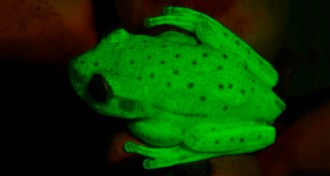 Animals
AnimalsFirst fluorescent frogs might see each others’ glow
A polka dot frog, the first known fluorescent amphibian, may get a visibility boost in twilight and moonlight.
By Susan Milius -
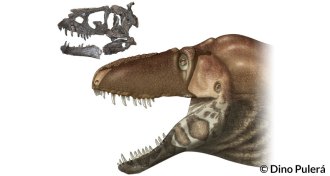 Paleontology
PaleontologyNew tyrannosaur had a sensitive side
Tyrannosaurs may have had sensitive snouts that detected temperature and touch.
-
 Astronomy
AstronomyAsteroid in Jupiter’s orbit goes its own way
Asteroid shares Jupiter’s orbit around the sun but travels in the opposite direction as the planet.
-
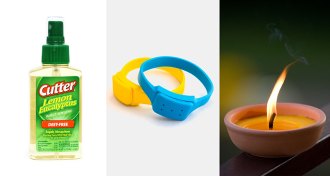 Health & Medicine
Health & MedicineSpray-on mosquito repellents are more effective than other devices
To avoid mosquito bites, stick with spray-on repellents and skip the bracelets and citronella candles, a new study says.
-
 Planetary Science
Planetary ScienceIt’s time to redefine what qualifies as a planet, scientists propose
Astronomers can have their definition of a planet, but some planetary scientists plan to stick to the long-held meaning of the word.
-
 Genetics
GeneticsIn 1967, LSD was briefly labeled a breaker of chromosomes
Claims that the hallucinogenic drug damaged DNA were quickly rejected. But questions remain about how LSD works.
By Bruce Bower -
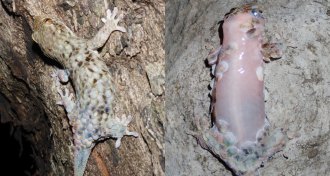 Animals
AnimalsDetachable scales turn this gecko into an escape artist
A new species of gecko evades predators by shedding its scaly armor.
-
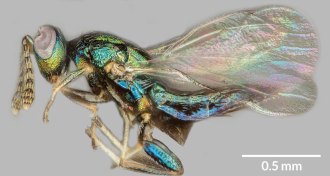 Animals
AnimalsHow one enslaving wasp eats through another
A wasp that forces oaks to grow a gall gets tricked into digging an escape tunnel for its killers.
By Susan Milius -
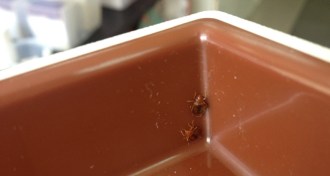 Animals
AnimalsTropical bedbugs outclimb common species
A study of bedbug traps and feet names finds that tropical bedbugs are much better at scaling slippery walls than common bedbugs.
-
 Physics
PhysicsA slowdown at the sun’s surface explained
Light escaping from the sun could slow the spinning of its surface layers.
-
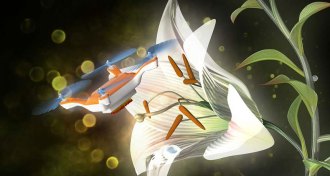 Agriculture
AgricultureFleets of drones could pollinate future crops
Chemist Eijiro Miyako turned a lab failure into a way to rethink artificial pollination.
-
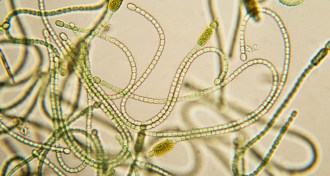 Life
LifeOrigin of photosynthesis may go further back than estimates from 50 years ago
Analyzing ancient rocks has helped push back the date when photosynthetic organisms first emerged by nearly a billion years.